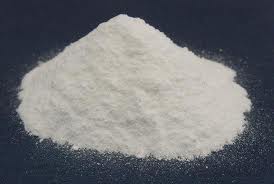Open here for our page navigation
Titanium Dioxide
Titanium (IV) Oxide, TiO2
Titanium dioxide is a solid white substance which is handled like powder. Its purity can vary between 80 and 100%. Dominant impurities are aluminum hydroxide and silicon. The substance sinks in water.
Titanium dioxide is made principally from the mineral ilmenite (FeTiO3). The mineral anatase (CAS no 1317-70-0) and rutile (CAS no 1317-80-2) both consist of titanium dioxide and are also used as a raw material source, though to a lesser extent. Most production takes place in the USA, Western Europe and Japan.
Formula TiO2
CAS# 13463-67-7
Anatase (CAS no 1317-70-0)
Rutile (CAS no 1317-80-2)
Formula Weight 79.9
Melting Point 1830oC
Boiling Point 2500oC
Density 4.23 gm/cc
Color Solid White
Crystal Structure Rutile
Solubility insoluble
Titanium dioxide is used as a raw material, mainly for the production of pigments. To a lesser extent it is also used as a raw material for the production of pure metal or alloying metal for the manufacture of space rocket parts, and industrial equipment where high resistance is needed to corrosive chemicals. Smaller quantities of titanium dioxide are used in welding products, ceramic products, dental products and glass fiber.
The whiteness and stability of titanium dioxide make it an excellent pigment. Pigment use is now the paramount raw material used in Sweden. The substance is used mainly in paint, plastics, rubber, paper and printing inks. Small volumes are also used in jointing compounds, adhesives, putty and cosmetics. In plastic (e.g. flooring and plastic bags), titanium dioxide also serves to protect the plastic against degrading UV radiation. Filler in paper, paint and rubber often consists of titanium dioxide.


